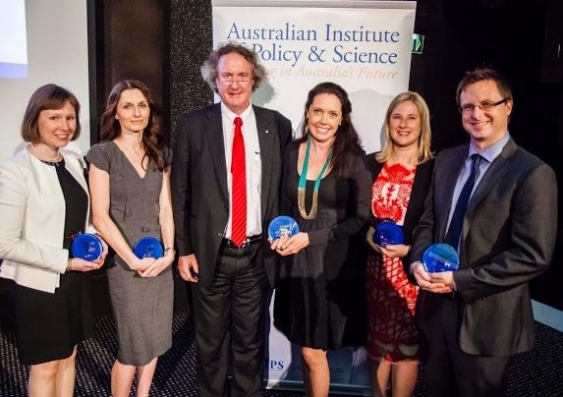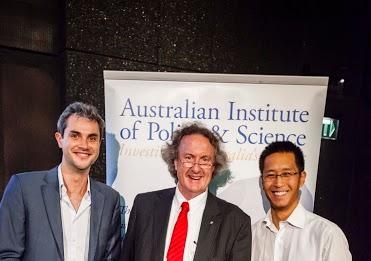UNSW stands out in Tall Poppies field
UNSW researchers have had another stellar year at the Young Tall Poppy Awards for leading scientists, winning five of the 10 prizes for 2014 – the best result of any university.
UNSW researchers have had another stellar year at the Young Tall Poppy Awards for leading scientists, winning five of the 10 prizes for 2014 – the best result of any university.

Stand-out researchers at UNSW have won five of this year’s 10 Tall Poppy Science Awards recognising excellence in science – the largest number of winners from one university.
The awards, run by the Australian Institute of Policy and Science (AIPS), honour emerging researchers and award them for their world-class research and passionate commitment to communicating science.
The New South Wales winners – from the medicine, science and engineering faculties – are nominated by their peers and will spend a year engaging with school students, teachers and the broader community to share their knowledge.
Cognitive scientist Dr Muireann Irish from Neuroscience Research Australia is researching how we remember the past and imagine the future, with her ultimate goal to contribute towards remediation of memory difficulties in dementia to improve quality of life.
Dr Angela Nickerson is researching refugee and post conflict mental health, employing experimental methods to uncover mechanisms underlying the relationship between refugee trauma and mental health outcomes.
Dr Nicola Newton at the National Drug and Alcohol Research Centre developed the first ever internet-based intervention for the prevention of alcohol and cannabis abuse, while Dr Megan Lord is focused on molecular interactions to better understand how implantable medical devices integrate with the body.
Dr Thomas Whitford works in the area of schizophrenia and neuroimaging and aims to understand why healthy patients are able to suppress self-produced sensations such as being unable to tickle themselves, while schizophrenia patients are unable to suppress these sensations.
UNSW would also like to congratulate Dr Lawrence Lee and Dr Alastair Stewart of the UNSW-affiliated Victor Chang Cardiac Research Institute for winning Tall Poppy awards this year.
Camille Thomson, AIPS general manager, says the awards celebrate Australia’s best and brightest achievers in science.
“Many Young Tall Poppies go on to achieve even greater things and to become inspiring leaders in their field,” she says.
“They also become role models by working with the education and community sectors to encourage greater engagement in science.”
Media contact: UNSW Media office, 02 9385 8920
